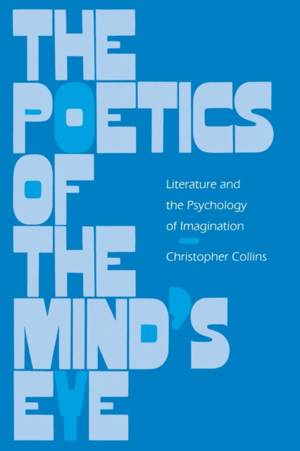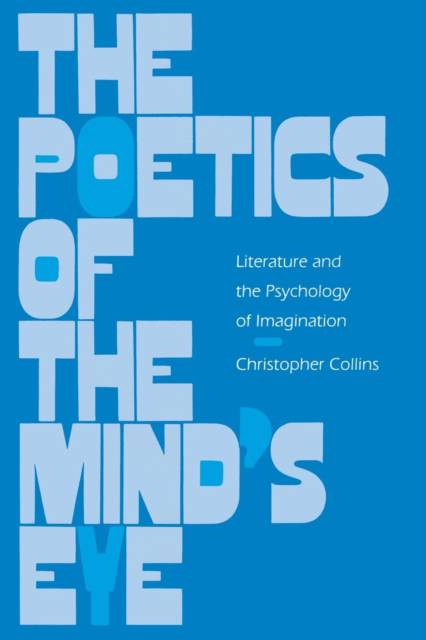
Bedankt voor het vertrouwen het afgelopen jaar! Om jou te bedanken bieden we GRATIS verzending (in België) aan op alles gedurende de hele maand januari.
- Afhalen na 1 uur in een winkel met voorraad
- In januari gratis thuislevering in België
- Ruim aanbod met 7 miljoen producten
Bedankt voor het vertrouwen het afgelopen jaar! Om jou te bedanken bieden we GRATIS verzending (in België) aan op alles gedurende de hele maand januari.
- Afhalen na 1 uur in een winkel met voorraad
- In januari gratis thuislevering in België
- Ruim aanbod met 7 miljoen producten
Zoeken
The Poetics of the Mind's Eye
Literature and the Psychology of Imagination
Christopher Collins
Paperback | Engels
€ 60,95
+ 121 punten
Omschrijving
Because every literary image is also a mental image, and because every mental image is a representation of an absent entity, Christopher Collins argues, imagination is a poiesis, a making-up, an act of play for both author and reader. In a book that stands at the intersection of poetic theory and cognitive psychology, Collins considers the processes by which language mediates mental images to make this play possible. The Poetics of the Mind's Eye examines the relation of mind to eye, or of mental imagination to visual perception. This work offers an analysis of the reading act that is at once elegant and profound. It covers an enormous body of material--from contemporary hermeneutics to studies in memory and perception--and applies the resulting observations with brilliance to a range of poetry, ancient and modern. The heart of the study consists of Collins's original delineation and application of six "cognitive modes" of reading: perception, retrospection, assertion, introspection, expectation, and judgment. In addition, Collins considers the impact of the movement from oral to print-literate culture, examines the work of seventeenth- and eighteenth-century empirical philosophers on the nature and power of the imagination, and explores the ways in which nineteenth- and twentieth-century literary theorists, linguists, and psychologists are heirs to this empirical tradition. The Poetics of the Mind's Eye will be of interest to students and scholars of literary theory and criticism.
Specificaties
Betrokkenen
- Auteur(s):
- Uitgeverij:
Inhoud
- Aantal bladzijden:
- 224
- Taal:
- Engels
Eigenschappen
- Productcode (EAN):
- 9780812213607
- Verschijningsdatum:
- 1/10/1991
- Uitvoering:
- Paperback
- Formaat:
- Trade paperback (VS)
- Afmetingen:
- 167 mm x 221 mm
- Gewicht:
- 362 g

Alleen bij Standaard Boekhandel
+ 121 punten op je klantenkaart van Standaard Boekhandel
Beoordelingen
We publiceren alleen reviews die voldoen aan de voorwaarden voor reviews. Bekijk onze voorwaarden voor reviews.









